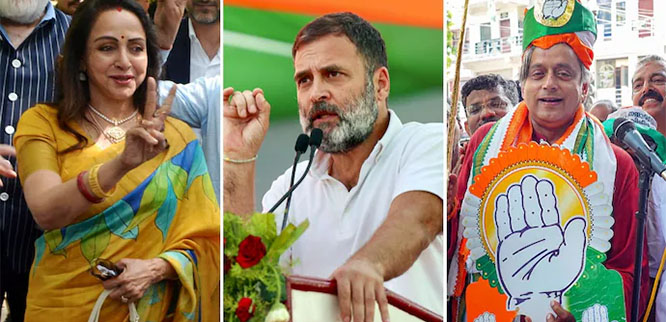
Cairo, Apr 3: The mummified remains of 22 Egyptian pharaohs, including the most powerful ancient queen, are to be paraded through the streets of Cairo Saturday, in a procession to a new resting place.
Under the watchful eyes of security forces, the mummies will be moved seven kilometres (four miles) across the capital from the iconic Egyptian Museum, where most have resided undisturbed for over a century, to the new National Museum of Egyptian Civilisation.
Dubbed the Pharaohs' Golden Parade, the 18 kings and four queens will travel in order, oldest first, each aboard a separate float decorated in ancient Egyptian style.
The interior ministry said both pedestrians and vehicles would be barred from Tahrir Square, site of the current museum, and other sections of the parade route, ahead of the 6:00 pm (1600 GMT) start.
"The whole world will be watching," said Egyptian archaeologist and former antiquities minister Zahi Hawass, who will commentate as the event unfolds live on state television.
"This is an important 40 minutes in the life of the city of Cairo."
Seqenenre Tao II, "the Brave", who reigned over southern Egypt some 1,600 years before Christ, will be on the first chariot, while Ramses IX, who reigned in the 12th century BC, will be at the rear.
Ramses II and Queen Hatshepsut, the most powerful female pharaoh, will also make the journey.
Emblazoned with the name of their allotted sovereign, the gold-coloured carriages will be fitted with shock absorbers for the trip, to ensure none of the precious cargos are accidentally disturbed.
Discovered near Luxor from 1881 onwards, most of the mummies have lain in the Egyptian Museum since the early 1900s.
Fascinating new details of the pharaohs' lives are still emerging.
A recent high-tech study of Seqenenre Tao II, involving CT scans and 3D images of his hands and long-studied skull fractures, indicated that he was likely killed in a post-battle execution ceremony.
For their procession through Cairo's streets, the mummies will be in special containers filled with nitrogen, under conditions similar to their regular display cases.
The mummies will be showcased individually at the National Museum of Egyptian Civilisation, in an environment redolent of underground tombs.
They will be signposted by a brief biography and, in some cases, copies of CT scans.
Upon arrival, they will occupy "slightly upgraded cases," said Salima Ikram, professor of Egyptology at the American University in Cairo.
"The temperature and humidity control will be even better than it was in the old museum," added Ikram, a mummification specialist.
The mummies' re-housing "marks the end of much work to improve their conservation and exhibition," said UNESCO Director-General Audrey Azoulay.
"This raises emotions that go much further than the mere relocation of a collection -- we will see the history of Egyptian civilisation unfold before our eyes," she added.
The National Museum of Egyptian Civilisation was completed in 2010, and Hawass said he had planned to open it in 2012. But the process was delayed by the Arab Spring revolution of 2011 and subsequent turmoil.
The new museum opened its doors to limited exhibits from 2017 and will open fully on Sunday, before the mummies go on display to the general public from April 18.
In the coming months, the country is due to inaugurate another new showcase, the Grand Egyptian Museum, near the Giza pyramids.
It too will house pharaonic collections, including the celebrated treasure of Tutankhamun.
Discovered in 1922, the tomb of the young ruler, who took the throne briefly in the 14th century BC, contained treasures including gold and ivory.
A so-called "curse of the pharaoh" emerged in the wake of Tutankhamun's unearthing in 1922-23.
A key funder of the dig, Lord Carnarvon, died of blood poisoning months after the tomb was opened, while an early visitor likewise died abruptly in 1923.
With the planned parade coming only days after several disasters struck Egypt, some have inevitably speculated on social media about a new curse provoked by the latest move.
Recent days have seen a deadly rail collision and a building collapse in Cairo, while global headlines were dominated by the struggle to refloat the giant container ship MV Ever Given which blocked the Suez Canal for almost a week.







Comments
Add new comment